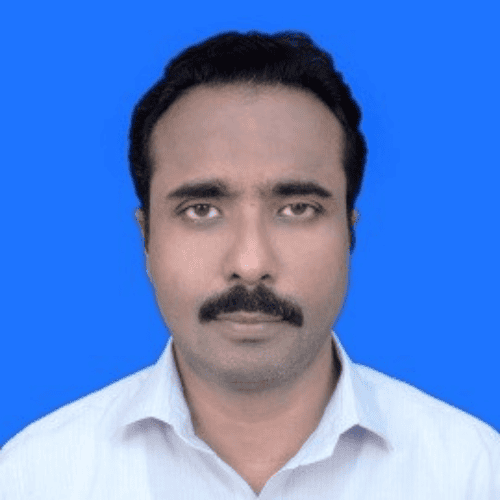
DTP Alumnus Rufus Kamran is the Executive Director at the Society for Peace and Sustainable Development (SPSD), a small minority-led human rights focused civil society organisation working in five districts of the Punjab province in Pakistan. A major focus of SPSD’s work is addressing gender-based violence especially early and forced child marriages, forced religious conversion, minority rights and human trafficking.
Additionally, Rufus advocates for climate justice, recognising that environmental crises disproportionately impact marginalised communities. He strongly supports the inclusion of minority rights leaders in policy-making and decision-making meetings to ensure that policies reflect the unique problems and climate challenges faced by every community. By advocating for this inclusion, Rufus aims to create more equitable and effective policies that address the specific needs of marginalised populations, providing them with better access to resources and opportunities to thrive.
Rufus belongs to the small Christian minority population in Pakistan, a Muslim majority country. Only 4% of Pakistanis are from Christian and other minority religious backgrounds. Conservative religious traditions and a rise in religious fundamentalism has contributed to an increase in persecution of religious minorities, attacks on individuals and concerns for the safety of advocates of religious pluralism and tolerance. This makes Rufus’s human rights work both challenging and important.
Women and girls from minority communities are particularly at risk and vulnerable to abuse, including sexual violence, abduction, forced marriage and coerced religious conversion. Perpetrators from the majority Muslim community often enjoy impunity and protection from the courts and police who cite religious law to support perpetrators. Recently a group of UN independent human rights experts expressed their dismay at the continuing lack of protection for the Christian and Hindu minority girls.
“As a person belonging to minority Christian community, I feel pain to see abuse of young minority children at the hands of Muslim fundamentalists but I am committed to continue to address this serious problem in our country and give my best effort.”
Rufus said that he has many challenges to his work. His work engages grassroot-level communities, district level administrations as well as local and international human rights groups. DTP training empowered him to be more strategic and diligent in his work.
Rufus said that DTP taught him advocacy strategies, how to set advocacy targets and how to work diplomatically.
“DTP was incredibly helpful in shaping my advocacy ideas and teaching me how to frame advocacy more effectively, so that advocacy targets are achievable. DTP provided me with a space where I was able to talk about my struggle in Pakistan, and I also came to know of many of friends from different countries who are working on human rights issues. When I returned to Pakistan, I felt that my advocacy campaign skills were elevated. Thanks to DTP.”
Rufus says as a minority organisation they face discrimination in everyday life. Recently SPSD was refused a Renewal Certificate multiple times because of discriminatory positions towards religious minorities. However, through advocacy knowledge gained from DTP Rufus hopes to resolve this issue in future.
DTP acknowledges the traditional custodians of the land on which we work, the Bedegal people of the Eora Nation. We recognise their lands were never ceded, and we acknowledge their struggles for recognition and rights and pay our respects to the Elders – past, present – and the youth who are working towards a brighter tomorrow. This continent always was and always will be Aboriginal land.
Aboriginal and Torres Strait Islander peoples should be aware that this website contains images or names of people who have passed away.
DTP acknowledges the traditional custodians of the land on which we work, the Bedegal people of the Eora Nation. We recognise their lands were never ceded, and we acknowledge their struggles for recognition and rights and pay our respects to the Elders – past, present – and the youth who are working towards a brighter tomorrow. This continent always was and always will be Aboriginal land.
Aboriginal and Torres Strait Islander peoples should be aware that this website contains images or names of people who have passed away.
Privacy Policy | Terms of Use | Disclaimer | Policies
© 2022 Diplomacy Training Program | ABN 31 003 925 148 | Web Design by Studio Clvr